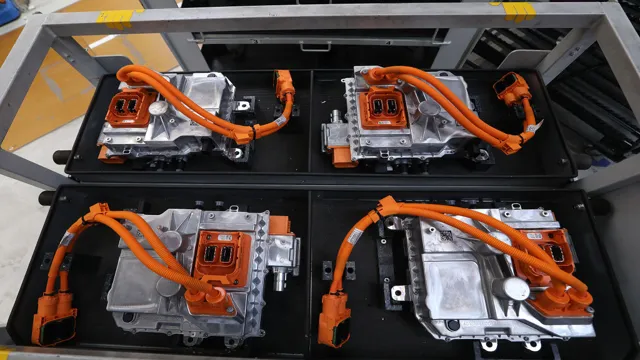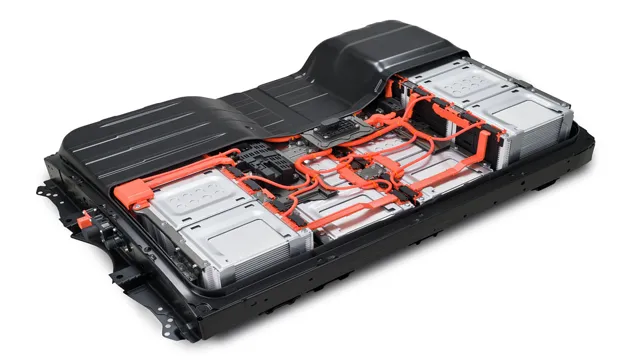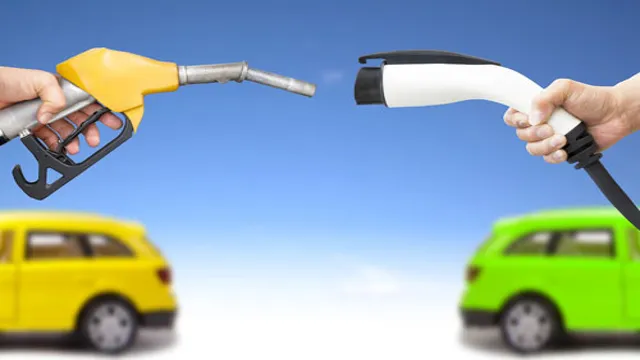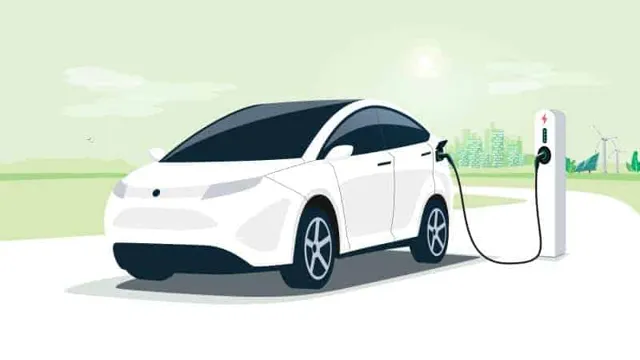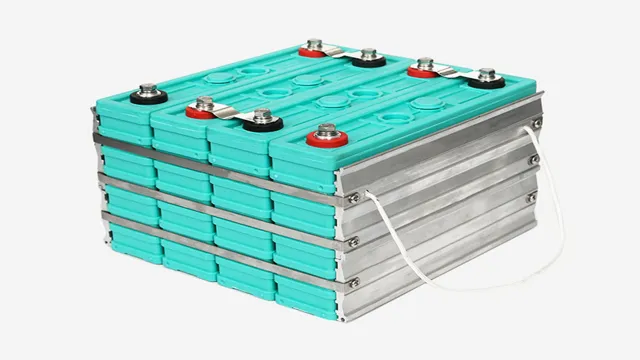Unleashing the Potential of Flow Batteries: The Future of Electric Cars?
Electric cars are becoming increasingly popular as people strive to lower their carbon footprint and reduce their reliance on fossil fuels. As technology evolves, the number of ways to power electric cars also increases. One of the most promising possibilities for powering electric cars is flow batteries, which use liquid electrolytes to generate electricity.
But can flow batteries power electric cars? The answer is yes, but it’s complicated. In this blog, we’re going to explore the merits of flow batteries for electric cars and examine why they could be an excellent choice for sustainable transportation. We’ll also explore some of the challenges that need to be overcome to make them a viable option.
So, fasten your seatbelt, and let’s dive into the world of flow batteries for electric cars!
Understanding Flow Batteries
Flow batteries have been gaining momentum in recent years, and many are interested in whether they could be a viable option for electric cars. Flow batteries operate by using two chemical solutions that are pumped from separate tanks into the reaction chamber where they undergo a chemical reaction, producing electricity. This process can be reversed to recharge the batteries.
One benefit of flow batteries is that they have a much longer lifespan than traditional lithium-ion batteries. They also have the potential to be cheaper and more environmentally friendly. However, there are still some limitations to flow batteries that may make them unfeasible for electric cars, such as their lower energy density and larger size.
While research into flow batteries is ongoing, it remains to be seen whether they will become a practical solution for powering electric cars in the future.
What Are Flow Batteries?
Flow batteries are a type of rechargeable battery that can store and release electrical energy through a liquid electrolyte. Unlike traditional batteries that store energy in a solid form, flow batteries use two external tanks containing electrolyte solutions that flow through a cell stack where the electrochemical reactions take place. This allows flow batteries to offer several advantages over conventional batteries, such as longer lifespan, scalability, and the ability to discharge the battery completely without causing damage.
Flow batteries also have the potential to support the integration of renewable energy sources such as wind and solar power into the electrical grid, as they can store excess energy during times of low demand and release it during times of peak demand. Overall, flow batteries represent a promising technology for the future of sustainable energy storage.
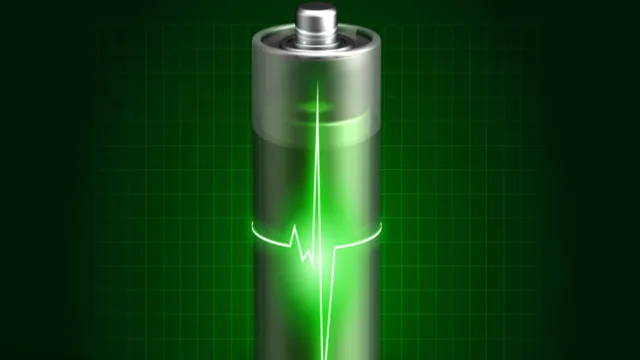
How Do Flow Batteries Work?
Flow batteries are a type of rechargeable energy storage device that operates by storing chemicals in external tanks and then pumping them through the cell stacks to produce an electric current. They differ from conventional batteries in that they have two sets of electrodes separated by a membrane, which allows for the flow of electrolytes in and out of the battery. When the battery is charged, the chemicals in the tanks flow through the electrodes and the membrane, generating a current.
When the battery is discharged, the process is reversed, with the electrolytes flowing back to the external tanks. The advantage of flow batteries is that they are highly scalable and can be recharged quickly by simply replacing the electrolyte solution. This also makes them suitable for storing large amounts of renewable energy from sources such as wind and solar, which can be unpredictable and intermittent.
Overall, the technology behind flow batteries is advancing rapidly, making them an increasingly attractive option for storing clean energy.
Limitations of Lithium-ion Batteries
Flow batteries hold great potential as an alternative to lithium-ion batteries for electric cars. While lithium-ion batteries are currently the most popular choice due to their high energy density and relatively low cost, they do have some limitations. For one, they degrade over time, which means their performance gradually declines with use.
Additionally, lithium-ion batteries can be prone to overheating and even catching fire in certain circumstances. Flow batteries, on the other hand, have a design that mitigates these risks. They store energy as a liquid electrolyte that can be easily replaced when depleted, allowing for longer life and greater durability.
While flow batteries are still relatively new and have yet to be widely adopted, they hold great promise and may be a viable solution for electric vehicles in the future.
Range Anxiety
Range anxiety is a common concern among electric vehicle (EV) owners, and it arises from the limitations of lithium-ion batteries. While such batteries are undoubtedly superior to traditional lead-acid ones in terms of energy density, they have a tendency to lose charge quickly and are not immune to degradation over time. This means that an EV’s maximum range will diminish over the years, making it harder for drivers to plan long journeys without the fear of running out of power before reaching their destination.
Another factor that contributes to range anxiety is the lack of ubiquitous charging infrastructure, which can make it difficult for commuters to find a charging station nearby when needed. However, efforts are being made to resolve both of these issues, with some companies experimenting with solid-state batteries that promise to offer faster charging times and higher energy densities. Additionally, governments and private organizations are investing heavily in expanding the charging infrastructure, which should help alleviate range anxiety in the near future.
Long Charging Times
One limitation of lithium-ion batteries is their long charging times, which can be a major inconvenience for many users. Although lithium-ion batteries have revolutionized the energy storage industry, they have not yet overcome this particular issue. The charging time of a lithium-ion battery is largely determined by its capacity and the level of its charge.
The larger the capacity of the battery, the longer it will take to charge. In addition, the higher the charge level, the slower the charging time. These factors make lithium-ion batteries unsuitable for devices that require frequent charging or those that need to be charged quickly.
To mitigate this problem, research is ongoing to develop new battery technologies that can provide faster charging times without compromising on the battery’s overall capacity or lifespan. Ultimately, until a more suitable technology is developed, users will need to be patient when charging their devices with lithium-ion batteries.
Expensive Battery Technology
While lithium-ion batteries have dominated the market for portable electronics and electric vehicles due to their high energy density, they do have their limitations. One significant disadvantage is their cost. Lithium-ion batteries require expensive materials such as cobalt, which can lead to high production costs and an overall expensive end product.
Additionally, lithium-ion batteries have a limited lifespan and can degrade over time, which can diminish their performance and require their replacement. This makes them impractical for long-term use in larger applications such as power grids. Researchers continue to explore new battery technologies, such as solid-state batteries, that could provide better performance and durability at a lower cost.
While lithium-ion batteries remain the standard for now, advancements in battery tech may offer more affordable and sustainable options in the future.
Advantages of Flow Batteries for Electric Cars
Yes, flow batteries can be used for electric cars and have several advantages over traditional lithium-ion batteries. One major benefit is that flow batteries can be recharged quickly by simply replacing the electrolyte solution, compared to the longer charging times of lithium-ion batteries. This means that electric cars using flow batteries can recharge faster, increasing their range and reducing the need for frequent recharging stops.
Additionally, flow batteries have a longer life cycle and can handle a higher number of charge and discharge cycles. They also have a lower risk of fire or explosion and are more environmentally friendly as they use non-toxic, non-flammable electrolytes. Overall, flow batteries have the potential to revolutionize the electric car industry and may become a popular alternative to lithium-ion batteries in the future.
Higher Energy Density
One of the biggest advantages of flow batteries for electric cars is their higher energy density. Energy density refers to how much energy a battery can store per unit volume or weight. Since electric cars have limited space and need to be as lightweight as possible for maximum efficiency, higher energy density becomes crucial.
Flow batteries have an advantage over other types of batteries because their energy density can be increased by simply adding more electrolytes to the system. This means that flow batteries can store more energy in a smaller space than other types of batteries, which is a huge plus for electric cars. With higher energy density, electric cars can travel longer distances on a single charge and have better acceleration and performance.
In contrast, other battery technologies may require multiple batteries to achieve the same energy density, resulting in increased weight and reduced efficiency. Therefore, flow batteries have the potential to revolutionize the electric car industry by providing a more efficient and convenient energy storage solution.
Scalability
Scalability; Flow Batteries; Electric Cars; Advantages The scalability of electric cars has been an ongoing concern for the automotive industry. One potential solution could be the adoption of flow batteries. Unlike traditional lithium-ion batteries, flow batteries can have their capacity easily increased by adding more electrolyte tanks.
This is because they store energy in liquid form, making it easier to increase capacity by adding more fluid. Additionally, flow batteries have a longer lifespan than traditional lithium-ion batteries, potentially reducing the need for frequent replacements. Furthermore, flow batteries are less prone to overheating issues, making them safer for use in electric vehicles.
With these advantages, the adoption of flow batteries could be a game-changer in the race towards more scalable and environmentally-friendly electric cars.
Challenges to Using Flow Batteries in Electric Cars
Can flow batteries be used for electric cars? While flow batteries have shown promising results in stationary energy storage systems, there are still some challenges to using them in electric cars. One major challenge is their size and weight. Flow batteries require large tanks of liquid electrolytes, which can add significant weight to the vehicle.
Additionally, flow batteries have lower energy density compared to traditional lithium-ion batteries, which means they may not be suitable for long-range driving. Another challenge is the cost of production. Flow batteries require expensive materials such as rare metals, which can drive up the cost of production.
However, with continued research and development, flow batteries may become a viable option for electric cars in the future.
Conclusion
In conclusion, it’s clear that flow batteries have great potential for use in electric cars. Their ability to recharge quickly and easily, as well as their longevity, make them an attractive alternative to traditional lithium-ion batteries. However, it remains to be seen if flow batteries will be able to compete with the dominance of lithium-ion technology in the electric car market.
One thing’s for sure though – the future of electric car batteries is an exciting and rapidly evolving field, so who knows what innovations may be just around the corner!”
FAQs
What are flow batteries?
Flow batteries are rechargeable batteries that store energy in two liquid electrolytes.
How do flow batteries work?
Flow batteries work by pumping electrolytes from tanks into a cell stack where they react to produce electricity.
Can flow batteries be used in electric cars?
Yes, flow batteries have the potential to be used in electric cars as they have a longer lifespan and can be recharged quickly.
Are flow batteries more efficient than traditional lithium-ion batteries?
Flow batteries are not necessarily more efficient than traditional lithium-ion batteries, but they have a longer lifespan and can store more energy.
How expensive are flow batteries compared to traditional lithium-ion batteries?
Flow batteries are currently more expensive than traditional lithium-ion batteries, but their longer lifespan may make them a more cost-effective option in the long run.

